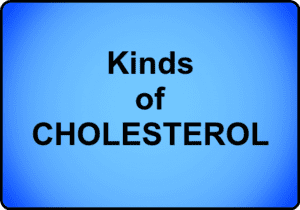 Is HDL good or bad cholesterol?
Is HDL good or bad cholesterol?
Your cardiovascular system is made up of blood vessels, they carry oxygen-rich blood to all parts of your body, your heart is the engine that drives the blood around your blood vessels, in a single day it pumps more than 14,000 liters of blood to the five main blood vessels, namely your arteries, your veins, your capillaries, and your arterioles. So, what is the problem?
High cholesterol occurs because of diet, a lack of exercise, family history, smoking, and excess alcohol. HDL is high-density lipoprotein or “good cholesterol” people get confused between good and bad cholesterol, so I’m going to give you the answer to the question is HDL good or bad cholesterol?
What is cholesterol?
Believe it or not, we need cholesterol to produce hormones, however too much of it can gather into plaque and stick to the walls of your arteries, plaque build-up is very dangerous because if it thickens it will block the blood from getting to your heart and other organs. We call this build-up of plaque atherosclerosis or hardening of the arteries.
What is the danger?
When an artery that leads to the heart becomes blocked it causes damage to the heart, otherwise known as a heart attack, or if an artery that leads to the brain becomes blocked it could cause a stroke.
Healthy cholesterol is important
Healthy cholesterol is important, doctors will tell you that total cholesterol levels should be under 5 or less than 200 mg per decilitre, cardiovascular disease is caused by a hardening of the arteries through plaque build-up, high cholesterol or bad cholesterol increases the chance of a heart attack or stroke.
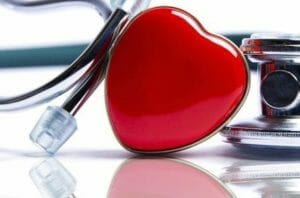
Heart disease
Heart disease statistics
The American Heart Association has published statistics dated 2016, showing that one in every three deaths is attributable to Cardiovascular disease, in fact, cardiovascular disease accounts for more deaths than all forms of chronic respiratory diseases and cancer combined.
Worldwide cardiovascular disease kills 17.6 million people in 2016, a staggering figure where some could have been avoided by eating healthy foods, quitting smoking, and being physically active.
High cholesterol can affect you from as early as your teens, you can make a big difference to your chances of avoiding cardiovascular disease by making small changes to your lifestyle.
How is cholesterol made?
Your liver makes the principal amount of cholesterol, which is called blood cholesterol, the liver can produce enough cholesterol for its needs to maintain a healthy heart and a healthy level of blood cholesterol. It is a fine balance that can be changed by hereditary factors, too much-saturated fats, or too many foods high in sugar.
Cholesterol is like fat or a lipid-like fat substance, your body uses cholesterol as the building blocks that make hormones, and vitamin D along with digestive juices helping your body to break down harmful fats that are in your diet. Cholesterol is carried to and from your body’s cells by lipoproteins, there are two types of lipoproteins high density or good cholesterol lipoprotein and low-density or bad lipoprotein.
Fatty deposits
Our bodies need cholesterol to function however fatty deposits accumulate in the blood vessels meaning that if cholesterol levels are too high, and the blood vessels narrow leading to heart attacks, strokes, vascular diseases, or coronary artery disease.
Triglycerides
Triglycerides are a component of body fat or fats from the food that you eat, triglycerides absorb fat especially from a fatty meal, if you were to have a blood test after a fatty meal your triglycerides would be high. Your liver turns these triglycerides into fats in the adipose tissue where a portion of it is turned into cholesterol, after eating fatty foods your cholesterol levels will be high for a few days afterward.
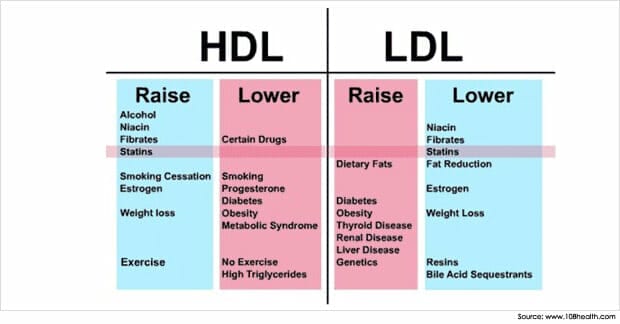 HDL and LDL
HDL and LDL
HDL (high-density lipoprotein) and LDL (low-density lipoprotein) are the two principal types of blood fats (cholesterol) that form your total cholesterol.
High-density lipoproteins HDL or good cholesterol a protector in the body from narrowing of the blood vessels.
Low-density lipoprotein LDL or bad cholesterol act to make arteries narrow.
Very low-density lipoproteins or another type of bad cholesterol made in the liver containing triglycerides.
Total cholesterol
Total cholesterol is the total amount of fats in your blood including good and bad cholesterol, the higher the number the higher the risk of cardiovascular disease, coronary artery disease, stroke, or vascular disease.
When the breakdown of HDL, LDL, Triglycerides, and VLDL have calculated the risk of a heart attack or stroke is known, that is why doctors will tell you that high LDL numbers indicate a bigger risk for blockages in the arteries.
On the other hand, the higher your levels of HDL the lower your risk of heart disease, stroke and vascular disease, high levels of HDL also keep LDL levels lower and protect the blood vessels from developing cardiovascular disease.
What are triglycerides?
Triglycerides come into the cholesterol profile because high triglycerides are an indicator of the number of fats in your food, they are a signal that you are at greater risk of developing coronary artery disease, stroke, or vascular disease.
Vascular disease is a group of blood vessel diseases, the arterial system, and the circulatory system, vascular disease is another type of cardiovascular disease, when damage is done to this huge network of blood vessels it can lead to serious health issues ranging from severe to fatal.
Cholesterol chart and what the numbers mean
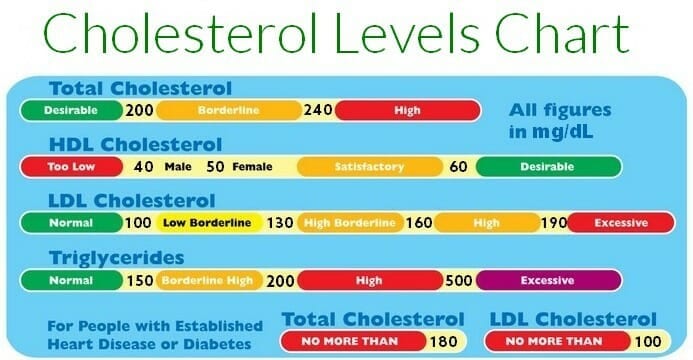
What are the causes of LDL or bad cholesterol?
There are several reasons why bad cholesterol forms:
- Bad diet high in fat
- A sedentary lifestyle
- Obesity
- Family genetics
- Alcoholism
- Diabetes
- Smoking
- Excess sugar
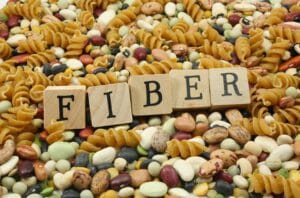 What can you do to lower your cholesterol?
What can you do to lower your cholesterol?
Apart from getting regular exercise, and stopping smoking you could try a high-fiber diet that would be beneficial for your heart and lower your cholesterol. The Mediterranean diet has been shown to reduce cholesterol, a vegan diet is in the same category, try these foods:
- Barley
- Whole grains
- Oatmeal
- Fruit and veg
- Avocado
- Spinach
- Kale
- Soybeans
- Garlic
- Fatty fish salmon mackerel
- Red wine in moderation
- Fiber supplements
The first steps to lower your cholesterol
Take a look at what you are eating, check the sugar content on the food label, change your eating habits to include food rich in fiber, speak to your doctor and ask for a heart healthy plan that includes exercise and is of benefit to you, if you are a smoker please stop smoking related diseases are cardiovascular disease and COPD, drink alcohol in moderation, keep stress to a low level by practicing Yoga or Tai Chi.
Medication
Try all of the above techniques first especially watch the food that you eat and make sure to exercise regularly, if these techniques don’t work to lower your cholesterol then your doctor may want to put you on medication that lowers cholesterol.
Can you raise your HDL levels?
HDL is the good cholesterol, the healthier this is the better for your overall health, but can you raise your HDL levels? unfortunately it isn’t that easy by just changing your diet you also need to lose weight, cut sugary foods out completely, exercise at least five times a week if you can.
How can you lower your LDL levels
Choose a diet that is high in fiber and low in fat, exercise regularly, keep your weight healthy, stop smoking and if your doctor prescribes statin medications stick to the dosage, they do work albeit with side effects. If you are finding the side effects of statin drugs too much, then you could try a supplement to lower your cholesterol.
Final thoughts
HDL the good cholesterol is the one to concentrate on because the higher this is the more chance you have of keeping yourself out of the risk category for heart disease, artery disease or a stroke.

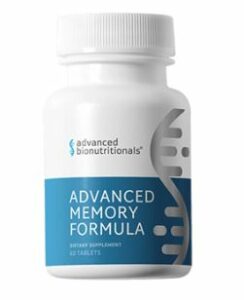
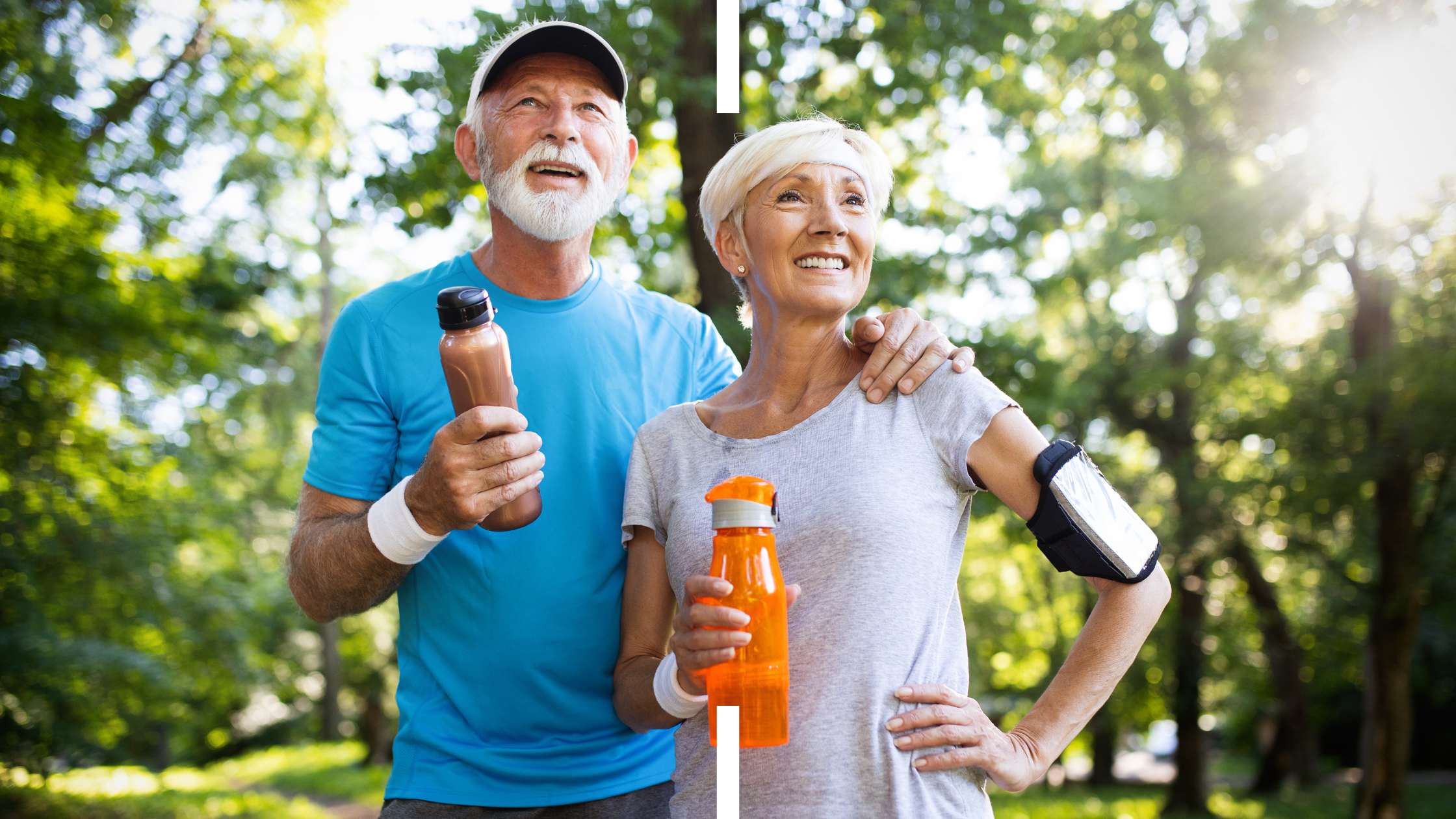
Leave a Reply
Leave a reply here